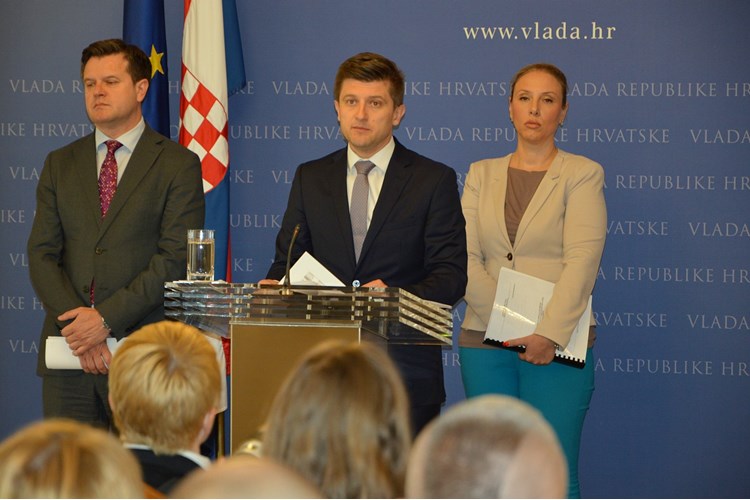


Broken down by items, the highest revenues, HRK 71.7 billion, came from taxes, which rose by 5.4% compared to 2015.
Maric pointed to more money coming from EU funds, and last year this budget revenue item rose by 57.2%.
EU funds accounted for 95% of receipts in the state budget last year.
In connection with budget expenses, that totalled 120.2 billion kuna, the expenditures from the so-called general sources that impact the deficit were reduced by 830 million kuna.
Maric also boasted that in 2016, Croatia managed to nominally cut the share of the public debt in GDP by some 505 million kuna, to 84.2% of GDP, which was 2.5 percentage points lower than at the end of 2015.
All this contributed to the European Commission's decision to abrogate the Excessive Deficit Procedure for Croatia, the minister said.
He noted that one of the positive things was the fact that the budget revenues rose at a higher rate than budget expenses, whereby Croatia fulfilled the fiscal rule.
The minister said that Croatia would introduce the criterion of monitoring the trends in the public debt.
At a news conference after the government decided to instruct a majority of companies of special and strategic importance for Croatia to pay 60% of their 2016 net profit into the state budget, Maric said that this regulation would fill the state budget with an estimated 1.2 billion kuna, and the largest portion in this contribution would be likely made by the HEP power provider.
He also commented on the exemption of some companies or state agencies and banks from this regulation, saying that the Croatian Postal Bank, which posted a record high profit in 2016, would be free of this obligation as it ought to inject fresh capital into its operations. Some other companies are exempted in order to funnel profit into new investments.
Text: Hina